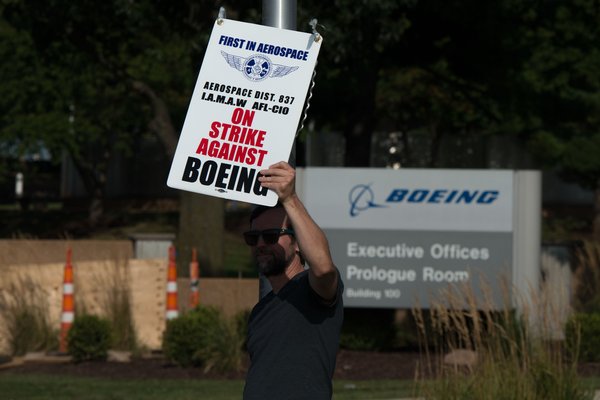Thousands of Boeing defense workers have rejected the company’s latest contract offer, prolonging a strike that began in early August 2023. The workers, represented by the International Association of Machinists and Aerospace Workers (IAMAW), voted against the proposal, which included wage increases and improved health benefits. The ongoing strike, which affects approximately 2,500 employees in Seattle, Washington, highlights significant tensions between labor and management within the aerospace industry.
The strike commenced on August 1, 2023, as workers expressed dissatisfaction with their working conditions and compensation packages. Boeing’s latest offer, which aimed to address some of these concerns, was deemed insufficient by the union members. According to IAMAW representatives, the workers are seeking more substantial improvements in pay and job security, especially in light of the rising cost of living.
Boeing has emphasized its commitment to negotiating a fair resolution. The company stated in a press release that it will continue to engage with union representatives to find a path forward. “We respect our employees’ right to strike and are dedicated to reaching an agreement that reflects their contributions to our success,” said a Boeing spokesperson.
The rejection of the offer has led to intensified discussions among union members about the future of the strike. Many workers are concerned about the impact of prolonged labor action on their livelihoods and the overall stability of the defense sector. The IAMAW has organized rallies to maintain morale and support among the striking workers. Union leaders are calling for solidarity from other labor organizations and the public to bolster their bargaining position.
As the strike extends into its third week, the implications for Boeing could be significant. The company relies heavily on defense contracts, and disruptions in production may impact its ability to deliver on current and future projects. Analysts have noted that continued labor unrest could also affect Boeing’s reputation as a reliable contractor, especially as it competes with other manufacturers in the defense sector.
Looking ahead, both Boeing and the IAMAW must navigate the complexities of labor negotiations while considering the needs of their workforce and the demands of the market. The outcome of this dispute could set a precedent for labor relations within the aerospace industry, making it a critical moment for both parties.
The situation remains fluid, with both sides indicating a willingness to return to the negotiating table. However, workers have made it clear that they will not settle for less than what they believe they deserve. As the strike continues, the focus will be on how Boeing addresses the workers’ concerns and whether a satisfactory agreement can be reached in the coming weeks.








































































